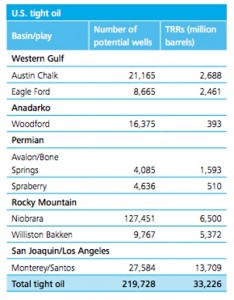U.S. crude production reached record levels in 2014 and the growing surplus has many questioning why a 40 year-old oil export ban is still on the books.
The export ban on all petroleum products was imposed during the 1970s as a way for the government to control prices during a time of scarcity. But times have changed and since 2008, U.S. crude oil output has increase by 81%. This record production is beginning to overtake the industry's ability to economically process these growing volumes and producers and analysts are raising their voices to advocate for a repeal on the anachronistic law.
Related:Continental Resources CEO Pushing for Lift of Export Ban
“Reporting to the Senate Committee on Energy and Natural Resources, IHS Vice President, Ambassador Carlos Pascual testified “The conditions that justified the crude oil export ban in 1973 no longer apply. More importantly, continuation of this ban hurts American consumers, causes an unnecessary drag on American productivity, and does not let the United States exploit fully the national security benefits from our energy resurgence.”
Earlier this month, IHS issued a report on the implications of the current ban and concluded that lifting the export ban could create hundreds of thousands of additional U.S. jobs and add billions to the U.S. economy.
Related: Oil Export Ban Is Hurting Your Royalty Checks!
The report goes on to say that eliminating the ban will have far-reaching consequences for the U.S. economy including:
- Further increases in domestic oil production
- Lower gasoline prices
- 964,000 additional jobs
- Benefits to manufacturing and service-related sectors in every state
- Strengthening national security and America’s position in the world
Read more at ihs.comPhoto: © Hramovnick


